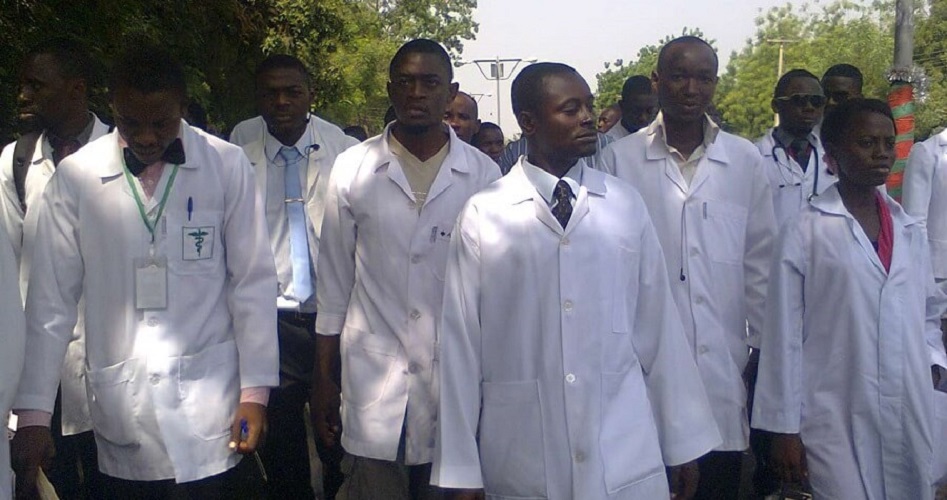The federal government on Sunday disclosed that the country has lost about 16,000 doctors to brain drain in the past five years.
The Coordinating Minister of Health and Social Welfare, Prof Ali Pate, disclosed this when he featured as a guest on Channels Television’s Politics Today.
Advertisement
Pate noted that only 55,000 licensed doctors are in the country to attend to the growing population of patients in the country.
He also disclosed that Nigeria has about 300,000 health professionals, which comprises doctors, nurses, midwives, pharmacists, laboratory scientists, and others.
“We did an assessment and discovered we have 85,000 to 90,000 registered Nigerian doctors. Not all of them are in the country. Some are in the Diaspora, especially in the US and UK. But there are 55,000 licensed doctors in the country,” he said.
While stating that the brain drain syndrome has robbed the health sector of its best hands, Pate also lamented that the available health professionals are not evenly distributed as a huge number of them are working against the urban centers.
Advertisement
“The issue overall, in terms of health professionals, is that they are not enough. They are insufficient in terms of the skills mix. Can you believe most of the highly skilled professional doctors are in Lagos, Abuja, and a few urban centres? There is a huge distribution issue.
“The population of doctors overall is about 7,600 doctors in Lagos and 4,700 or thereabout in Abuja. The doctor to population ratio in Abuja is 14.7 per 10,000 population. These are numbers that you can verify. In Lagos, it is about 4.6, even though the average is 2.2 by 10,000.
“There are huge distributional issues, and they are, of course, the opportunities even for some of those who have been trained to get into the market. So, you have to look at it from a perspective that is holistic. Not only doctors but other cadres that are important in the delivery of healthcare. For doctors, we have been losing many that have been trained,” he said.
The minister, however, stated that the government is doing its best to expand the training scheme and motivate health workers who chose to stay back and serve their fatherland.
“We are beginning to take steps to expand the training and work environment, taking some steps to encourage salaries and incomes commission to do certain things that will encourage them to feel at home. But even the issue of working hours that has come about recently, particularly for the junior doctors, is being addressed.
Advertisement
“We are beginning to take steps to expand the training and work environment, taking some steps to encourage salaries and incomes commission to do certain things that will encourage them to feel at home. But even the issue of working hours that has come about recently, particularly for the junior doctors, is being addressed. This is because when some of their colleagues leave and they remain at home, the burden has not reduced. And so they work extremely hard. We’ve listened to that.
“We are looking at how we can alleviate that and with the Medical and Dental Council of Nigeria, we are looking at how within the code of ethics and the guidelines for the physician to provide some safeguards to ensure they are treated as valuable assets so they are not burnt out,” he said.
Pate pointed out, however, that the Japa syndrome is a global phenomenon that equally affects other countries.
“It is not only limited to Nigeria. It is a global phenomenon. Other countries don’t have enough. They are asking to take more. It is not only in Nigeria. It is happening in India, Philippines, and other parts of Africa,” he said.



